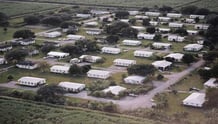
North Korea asserted its legitimate right to develop, test and possess weapons systems equivalent to those of the United States of America.
This came in a speech by the permanent Korean ambassador to the United Nations, Sung Yong Kim , before world leaders and leaders participating in the meetings of the United Nations General Assembly, which concluded its discussion on Monday evening.
“Given the US-South Korea military alliance and military threats against the DPRK (North Korea), no one can deny the right to defend ourselves and to develop, test, manufacture and possess weapons systems equivalent to those they own or possess (meaning the United States),” Song said.
He added, “If the United States shows its bold decision to abandon its hostile policy, our country is ready to respond willingly,” ruling out Washington’s abandonment of that policy toward his country at the current stage.
The Korean ambassador stressed that “the international community’s desire to see a peaceful solution to the issue of the Korean peninsula is in the interest of the Korean nation, especially since three decades after the end of the Cold War, the peninsula is still in a vicious cycle of exacerbating tension and looming confrontation.”
He continued, “We will not appeal to the United States to abandon its hostility towards us (…) What prevented the outbreak of a new war on the Korean peninsula is not America’s pity for us, but rather because our country is developing a reliable deterrent that can impose control over the hostile forces if they contemplate our military invasion.” “.
Song called on the administration of US President Joe Biden to permanently end joint military exercises with South Korea.
Last August, South Korea and the United States held joint military exercises, which North Korea considered a “threat to its security.”
Because of its continued ballistic and nuclear missile programs, North Korea is subject to a series of economic, commercial and military sanctions, under resolutions issued by the United Nations Security Council annually since 2006.













